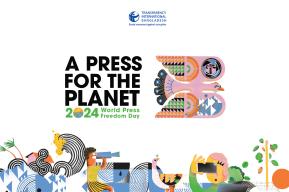News
Children become eDNA citizen scientists at Coiba National Park in Panama

On 7 February 2023, amidst a beautiful sunny day and a calm sea, 12 local school children aged 7 to 14 years travelled to Coiba National Park to become citizen scientists for the day. Under the supervision of an experienced local science team, the children collected water samples from the ocean area and extracted the genetic material with specialized equipment, provided by UNESCO, to learn about the fish communities at five different locations across the World Heritage area.
After being introduced to the environmental DNA (eDNA) methodology and its capability to help monitor marine life, the children departed from Santa Catalina and headed to Canales de Afuera where they collected the first water samples. Scientists from the local research station completed the children’s sampling effort on the eastern coast of Coiba to help ensure a balanced reflection of the World Heritage area’s rich marine life. The eDNA expedition at Coiba National Park was facilitated by the local research station, Coiba AIP, and the Ministry of Environment of Panama.
Through the collection of eDNA water samples in this unique World Heritage area, local children got to do marine science in a fun way, while also learning about the fish they see every day.
Environmental DNA is an innovative scientific method that can be used to monitor and evaluate ocean biodiversity without the need to extract organisms from their environment. Just one liter of water may contain genetic material from hundreds of species and may help determine the area’s biodiversity richness.
The UNESCO environmental DNA Expedition initiative is being rolled out across 25 marine World Heritage sites between September 2022 and April 2023. The eDNA data is expected to provide a one-off snapshot of biodiversity richness across marine World Heritage sites, particularly for fish species.
By combining the resulting biodiversity data with Intergovernmental Panel on Climate Change (IPCC) heat scenario projections, the initiative aims to provide a first glimpse of potential geographic and distribution shifts of fish species as a result of climate change which then in turn can inform conservation decision-making.
The eDNA Expeditions’ resulting data will be made publicly available through the UNESCO Ocean Biodiversity Information System, the world’s largest open science marine species database. Final results are expected to be available in Spring 2024.
The UNESCO eDNA initiative is a joint collaboration between the Intergovernmental Oceanographic Commission and the World Heritage Centre. It is made possible with the support of the Government of Flanders (Kingdom of Belgium) and implemented in the context of the United Nations Decade of Ocean Science for Sustainable Development (2021-2030).
About the Coiba National Park and its Special Zone of Marine Protection World Heritage site (Panama)
Coiba National Park and its Special Zone of Marine Protection was inscribed on the UNESCO World Heritage List in 2005 because of its globally outstanding habitat for cetaceans, sharks, sea turtles and a large variety of pelagic fish species of high importance to humanity. Coiba National Park and its surrounding marine ecosystems are repositories of extraordinary biodiversity, providing refuge for 760 species of marine fishes, 33 species of sharks and 20 species of cetaceans.






